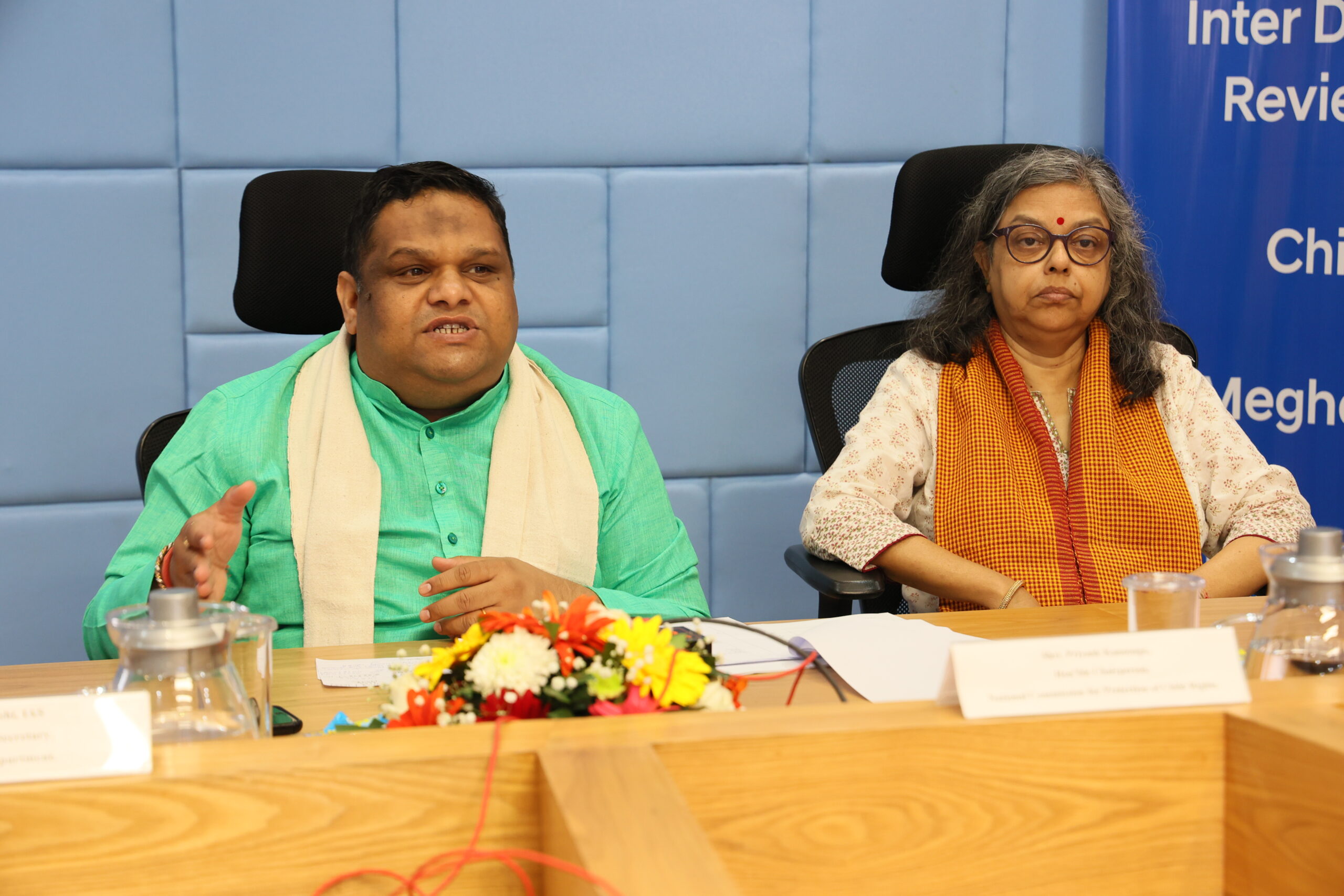SHILLONG, JUNE 22: The National Commission for Protection of Child Rights (NCPCR) has asked the state government to conduct a survey of all ‘Madrasas’ in Meghalaya and ensure children are enrolled in the formal schooling system.
Addressing media persons on Saturday, Chairperson of NCPCR Priyank Kanoongo said, “This is an alarming situation. We have requested the authorities to get a survey done of all these Madrasas in the state and get the children enrolled in the formal schooling system because as per the mandate of Article 21 (a) of the Constitution of India, every child has a right to get education and a formal school till the completion of age of 14 years and every state government is duty bound to provide them with this right which is right to education.”
“Madrasas are not schools but they are institutions for religious education. I have come across one incident where I had spoken to a child in the state of Meghalaya (during my visit to Ampati last month), who was returning from Madrasa, so he told me we are just studying religious education there. I asked him what he wants to be after reaching adulthood, he told me we don’t want to become any professionals like doctors or advocates but we are preparing ourselves for the ‘Akirat’ meaning life after death, they are preparing themselves for the day of judgment. This is an alarming situation and I have shown that video to the authorities,” he said.
He said that the department concerned was unaware of the existence of Madrasas in the state. “So we requested them (education department) to get checked and enrol the children into formal schooling so children can avail their fundamental right to education as mandated by Article 21 (a) of Constitution of India,” Kanoongo said.
The chairperson said that the state education department and the tribal affairs department have also been asked to increase the number of hostels in order to contain the number of out of school children in the state.
“We also requested the department of labor to provide with the compensation to all children who have been rescued from the situation of child labour,” he said.
Asked, Kanoongo said the issue of children affected with HIV is quite alarming in the state of Meghalaya.
“About 364 children are affected with HIV. We have requested the department of women and child to examine all of them and if they are eligible to provide them sponsorship under section 45 of JJ Act, so they can receive the monetary benefits,” he said.
Stating that Meghalaya has over 8,000 adult people who are HIV positive, Kanoongo said, “We have requested them (government) to examine these families if they have any child and who is needy and eligible for the benefits of sponsorship, provide them with a sponsorship benefits.”
In regards to crimes against children, the chairperson said that he had requested the state police authorities to appoint female police officials in police stations to work as child welfare police officers.
“I raised the issue in the meeting that the commission observed in some police stations where child abuse especially with abuse of girl child is prevailing, in the areas of such police station we have observed that adequate number of female police staffs is not there, so there is need to provide them,” he said while adding “We also requested to give child welfare committees with the training module, trained them with the training module developed by NCPCR to prevent these types of incidents.”
Asked on the recent incident at Kuliang where BSF were alleged to have molested a minor girl, the chairperson said, “I have not received any information but we will definitely issue notice if required we will send for enquiry if child is not getting benefit as per entitlement.”
Kanoongo said that the commission had also taken cognizance of the issue of teenage pregnancy in Meghalaya.
“We have discussed it at length and we asked a state government with some suggestions to work on it, to discuss with Community, to discuss with the council members and to create awareness through self-help groups,” he said.


